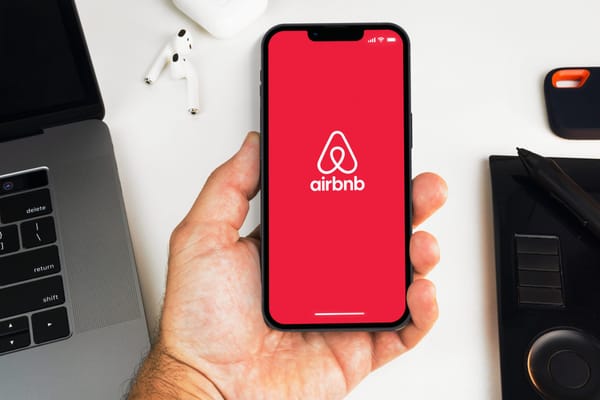Monthly Airbnb Rentals: A Guide for Hosts and Airbnb Owners

Discover how to generate additional revenue with monthly Airbnb rentals. Learn about the benefits, setting discounts, legal considerations, and tips for long-term hosting success.
In addition to short-term rentals, monthly Airbnb rentals can provide you with another revenue stream. Also called medium or mid-term rentals, these refer to renting out your property on a monthly basis.
Cities like New York, San Francisco, Los Angeles, or cities in Europe like Amsterdam are cracking down on Airbnb in residential metro areas, imposing stricter regulations on short-term rentals. For example, as of September 2023, New York requires hosts to register and obtain a special permit to operate on Airbnb.
As a way to get around these bans and strict rules, many hosts are turning to month to month rentals. This allows them to run their Airbnb business within the long-term rental regulations. However, it’s not only a way out for Airbnb owners in restricted residential urban areas. There’s a growing demand for this accommodation type from business professionals, travel nurses, digital nomads, and remote workers.
Many find Airbnb an easy and convenient accommodation option, making it a no-brainer for their extended stays. Software like iGMS can make it even easier.
How Do Monthly Rentals Work on Airbnb?
A stay of at least 28 consecutive days is considered a monthly stay on Airbnb. While sometimes referred to as medium-term rentals, it’s important to note that long-term rental laws apply to this type of extended stay. We’ll explore the implications of long-term rental laws later, but first, let’s cover the basics: how do you book a home for a month or more?
The process isn’t different from booking for one night or a few. Users type in their desired parameters in the search (28 days minimum), and any property that offers a monthly stay will appear in the results.
Payments are charged in monthly installments, along with service and cleaning fees paid upfront. The obvious benefit for hosts is filling up the calendar without worrying about vacancies and calendar gaps.
To protect hosts from cancellations, which would have greater consequences on revenue, Airbnb automatically applies a long-term cancellation policy to these reservations. Guests can only get a full refund if they cancel within 48 hours of booking and if the check-in date is at least 28 days away. After that, it’s non-refundable (except if a host voluntarily agrees to a reservation change or partial refund upon a request).
So, how would you price an extended stay?
How to Set Discounts for Monthly Stays?
On the Airbnb platform, you can customize discounts for a week and a month. How do you determine what percentage to knock off the price?
If you follow Airbnb, they recommend setting the percentage based on the expected number of vacancy days. For example, if your expected occupancy rate is 70% in a month, you have 30% vacant days, so your discount should be around 30%.
This can be a good starting point, but it also depends on your amenities, nightly rate, property types, and local competition.
Make a rough estimate of what you think is a fair minimum price that reflects the property’s worth, and tweak it to come closer to your desired rate.
When searching for monthly stays on the Airbnb map, a strikethrough price is displayed, allowing you to see the discounted and original prices. Some properties get discounted as high as 70%, though this sometimes raises questions about whether the original nightly rate was overpriced.
Pricing requires a comprehensive strategy and some flexibility. Each step in the process and each type of discount should be coordinated with the base rate to create a coherent pricing structure.

Do I Need a Long-Term Lease When Offering Long-Term Rentals on Airbnb?
As mentioned before, monthly rentals don’t receive any special treatment under the law. They’re considered long-term rentals by definition, meaning tenant rights laws, which protect renters, apply in these cases.
While we’re discussing this potential problem that owners could face, keep in mind it’s extremely rare and almost never happens. However, there’s still a small risk of encountering squatters who occupy your property and are protected by tenant rights laws.
Because the eviction process can be lengthy, requiring court appearances and a lot of hassle, Airbnb hosts usually choose to impose a lease agreement for bookings of one month or longer.
It’s true that Airbnb also protects hosts in these situations. If you still want an additional layer of security, you can hire a lawyer to create a legally binding document.
One important tip: You’re obligated to disclose the existence of the lease agreement before a guest hits the ‘Reserve’ button. This ensures guests are aware of the agreement prior to making their booking.
Pros of Monthly Rentals
Now, we’ll take a look at the advantages of the extended stay.
Stable Income Stream, Even in Low Season
In the rental business, fluctuations in bookings and income are quite common. Seasonality drives these highs and lows When you’re able to attract professionals like digital nomads for an extended stay, it’s like hitting the jackpot and finding a strategy that guarantees you a predictable income over a longer period.
Note how you can combine short-term with long-term strategies to diversify income.
Reduced Operational Costs
Monthly rentals mean fewer turnovers. This results in lower housekeeping costs and less time spent in organizing and supervising frequent cleanings. You still charge a cleaning fee, for cleaning after a long-term guest leaves.
Reduced Vacant Period
By appealing to guests seeking extended stays, you get a consistent revenue stream that stabilizes your rental business. While 100% occupancy with short-term rentals would be more profitable, it’s challenging to keep the calendar fully booked. Extended stays not only help eliminate vacant dates but also bring the convenience of not having to stress too much about attracting new guests.
Cons of Monthly Rentals
Be aware of potential downsides such as:
Lower Nightly Rates
You still earn less than you potentially could when having all nights and weeks booked separately.
Increased Wear and Tear
People will be living in your house, using all the amenities, so be prepared that some things may occasionally break or start looking worn out after their longer stay.
Increased Utility Costs
You’ll need to pay higher costs for utilities, as these aren’t tourists spending all day out, but people who consider your property their temporary home.

How to Arrange Properties for Extended Stay
A hotel may attract guests with free breakfast, but your unique selling proposition is that your properties feel like home and offer:
Comfort and Convenience: Fully furnished homes, essential amenities, including a well-equipped kitchen, comfortable living spaces, and reliable WiFi.
Proximity to Important Locations: Public transportation, grocery stores, and other necessities.
Dedicated Workspace: For remote workers and digital nomads.
To take the hassle out of rental management, try iGMS, rental management software that makes daily tasks a breeze. And thanks to the Channel Markup feature you will be able to update your pricing on multiple channels automatically.
About the Author
Zorica Milinkovic is a B2B SaaS writer who is passionate about psychology, marketing, and, when inspiration strikes, cooking. You can find her on LinkedIn.






